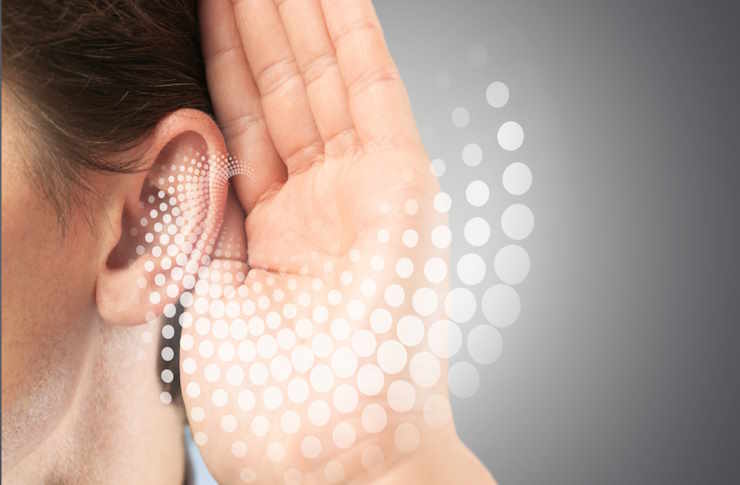What Are the Early Signs of Tinnitus That Often Go Unnoticed?
Tinnitus affects millions worldwide, yet its initial symptoms can be subtle and easily dismissed. Understanding these early warning signs is crucial for timely intervention. From intermittent ringing sounds to changes in hearing sensitivity, recognizing these early indicators can lead to more effective management and potentially better outcomes for those affected.

Tinnitus, commonly described as a persistent ringing, buzzing, or hissing sound in the ears without an external source, affects approximately 10-15% of adults globally. While many associate tinnitus with obvious, constant noise, its onset is often gradual with subtle signs that frequently go unnoticed or are dismissed as temporary inconveniences. Early recognition of these warning signs can lead to timely intervention, potentially preventing the condition from worsening and significantly impacting quality of life.
Common Symptoms Associated With Tinnitus Beyond Ringing
While the classic ringing in the ears is widely recognized, tinnitus manifests in various ways that might not immediately trigger concern. Some individuals experience clicking, pulsing, or whooshing sounds that come and go intermittently. This inconsistency often leads people to dismiss these episodes as normal ear functioning or environmental factors. Another overlooked symptom is the perception of sounds only in specific environments, particularly in quiet settings like during bedtime. Some people may also notice a heightened sensitivity to everyday sounds (hyperacusis) before the classic tinnitus symptoms fully develop. Additionally, tinnitus may initially present as a fullness or pressure sensation in the ears rather than a distinct sound, causing many to confuse it with congestion or ear infections.
Understanding The Connection Between Hearing Loss And Tinnitus
Hearing loss and tinnitus share a profound but often overlooked connection. Approximately 90% of tinnitus cases occur alongside some degree of hearing loss, yet many individuals fail to recognize their diminishing hearing capabilities. Early signs include difficulty understanding conversations in noisy environments, frequently asking others to repeat themselves, or turning up the volume on electronic devices higher than usual. The brain’s response to reduced auditory input often generates phantom sounds as it attempts to compensate for missing frequencies. This neurological adaptation explains why tinnitus frequently accompanies age-related hearing loss or noise-induced damage. Interestingly, some individuals may notice tinnitus symptoms before becoming aware of their hearing loss, making tinnitus an important early indicator of potential auditory system damage that warrants professional evaluation.
Expert Insights On Early Diagnosis Of Tinnitus
Audiologists and ENT specialists emphasize that early intervention is crucial for managing tinnitus effectively. One key diagnostic insight is that temporary tinnitus lasting more than 24 hours after noise exposure should not be dismissed as normal. Experts also note that changes in tinnitus characteristics—such as pitch, volume, or pattern—can signal underlying conditions requiring attention. Modern diagnostic approaches include comprehensive hearing assessments, tinnitus matching tests to determine specific frequencies and intensities, and sometimes imaging studies to rule out structural abnormalities. Specialists also evaluate the impact on daily functioning using validated questionnaires that measure tinnitus-related distress. Importantly, many healthcare providers now recognize that emotional responses to tinnitus, such as anxiety or sleep disturbances appearing early in the condition’s development, are significant clinical indicators that should prompt evaluation rather than being dismissed as unrelated psychological issues.
Lifestyle Changes That May Alleviate Tinnitus Symptoms
Certain lifestyle factors can exacerbate tinnitus symptoms or contribute to their onset, yet many individuals fail to make these connections. Stress management is particularly important, as elevated stress levels can intensify tinnitus perception even before it becomes a persistent problem. Dietary factors may also play a role—some people report worsening tinnitus after consuming caffeine, alcohol, excessive salt, or artificial sweeteners. Monitoring and adjusting these elements in the diet might help identify personal triggers. Sleep hygiene deserves special attention, as poor sleep and tinnitus create a bidirectional relationship where each worsens the other. Establishing consistent sleep routines and creating optimal sleeping environments can help break this cycle. Regular physical activity has shown promise in reducing tinnitus perception for some individuals, potentially through improved circulation and stress reduction. Additionally, limiting exposure to loud noises through appropriate protection in noisy environments represents a crucial preventative measure that many overlook until symptoms have already developed.
When To Seek Professional Help For Tinnitus
Knowing when to consult a healthcare provider about tinnitus can be challenging, particularly when symptoms are intermittent or subtle. Medical attention is warranted if tinnitus appears suddenly, especially after head trauma or an ear infection. Seeking help is also important when tinnitus is accompanied by dizziness, vertigo, or balance problems, as these may indicate inner ear disorders requiring treatment. Pulsatile tinnitus—tinnitus that beats in time with your heartbeat—should prompt immediate medical evaluation as it could indicate vascular issues. Additionally, tinnitus that occurs only in one ear (unilateral) deserves particular attention, as it sometimes signals conditions requiring specific interventions. Mental health changes associated with tinnitus, such as developing anxiety, depression, or sleep disorders, indicate that professional support is needed. Finally, any tinnitus that interferes with concentration, work performance, or social interactions should be evaluated, even if the sound itself seems minor, as effective management strategies exist that can significantly improve quality of life.
This article is for informational purposes only and should not be considered medical advice. Please consult a qualified healthcare professional for personalized guidance and treatment.




